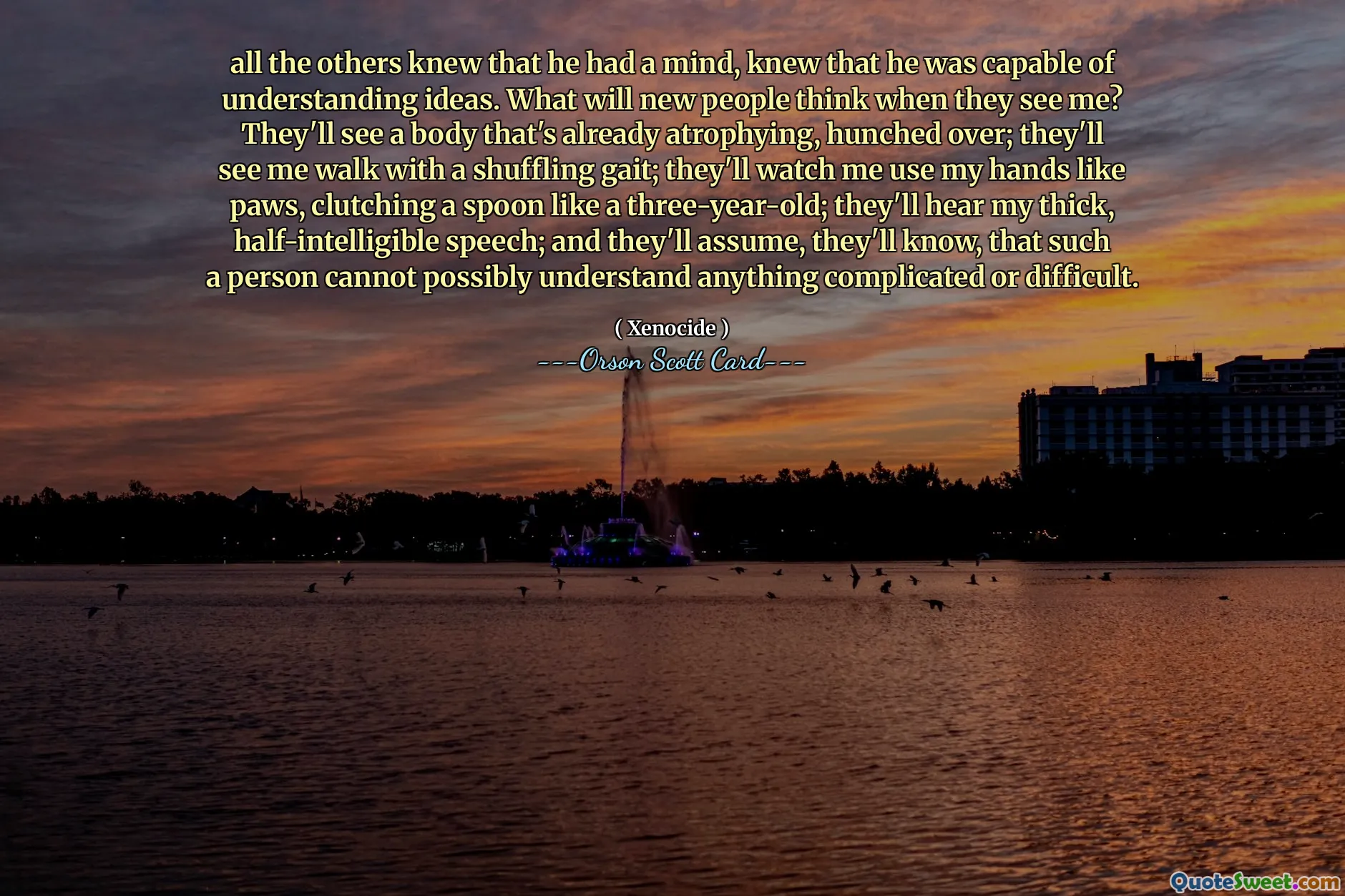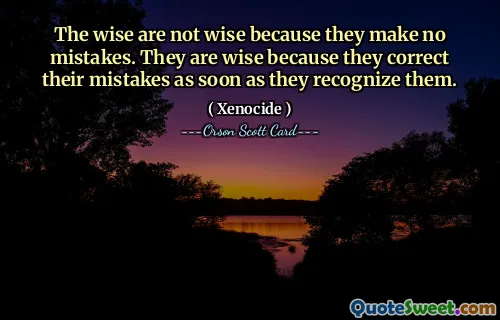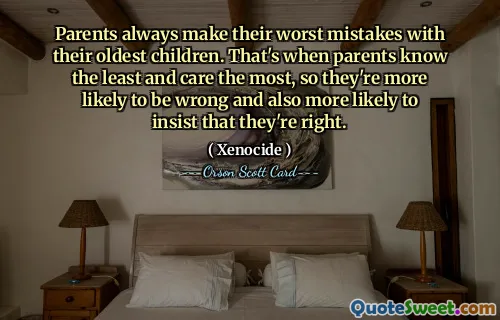
all the others knew that he had a mind, knew that he was capable of understanding ideas. What will new people think when they see me? They'll see a body that's already atrophying, hunched over; they'll see me walk with a shuffling gait; they'll watch me use my hands like paws, clutching a spoon like a three-year-old; they'll hear my thick, half-intelligible speech; and they'll assume, they'll know, that such a person cannot possibly understand anything complicated or difficult.
The character reflects on the judgments that new people will make based on his physical appearance and limitations. He fears that his atrophied body, awkward movements, and unclear speech will lead others to underestimate his mental capabilities. The deep concern lies in the stark contrast between his physical condition and his actual understanding of complex ideas.
This internal struggle highlights the disconnect between how people perceive him and his true intelligence. It emphasizes a broader theme of societal assumptions about individuals based on visible attributes, revealing the pain of being misunderstood and the frustration of not being recognized for one's mental abilities despite physical challenges.











